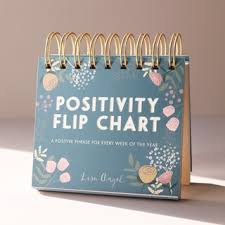Thoughtful Anniversary Gifts for Men: Celebrating Love and Togetherness
Anniversary Gifts for Men: Celebrating Love and Togetherness
Anniversaries are special occasions that celebrate love, commitment, and the journey shared by two individuals. When it comes to choosing the perfect gift for your significant other, it’s essential to find something thoughtful and meaningful. If you’re looking for anniversary gifts for men, we’ve got you covered with a range of ideas that are sure to make his day extra special.
Personalised Gifts
One way to show your love and appreciation is by giving a personalised gift. Consider customising a watch with his initials, engraving a piece of jewellery with a meaningful message, or creating a photo book capturing your memorable moments together. Personalised gifts add a unique touch that he will cherish for years to come.
Experience Gifts
Create lasting memories by gifting an experience that he will never forget. Whether it’s tickets to his favourite sports event, a cooking class, a weekend getaway, or an adventure activity like skydiving or hot air ballooning, an experience gift can bring excitement and joy to your anniversary celebration.
Tech Gadgets
If your partner is tech-savvy, consider surprising him with the latest gadgets or accessories. From smartwatches and wireless earbuds to gaming consoles and virtual reality headsets, there are plenty of high-tech gifts that can cater to his interests and hobbies.
Fashion Accessories
A stylish accessory can elevate his look and add a touch of sophistication to his wardrobe. Consider gifting him a designer tie, leather wallet, luxury cufflinks, or a classic watch that complements his personal style. Fashion accessories are practical gifts that he can use daily.
Subscription Services
Give the gift of convenience and enjoyment with a subscription service tailored to his interests. Whether it’s a monthly grooming box, a wine club membership, a book subscription service, or access to streaming services for his favourite shows and movies, subscription gifts provide ongoing delight throughout the year.
Whatever gift you choose for your anniversary celebration, remember that it’s the thought and effort behind the gesture that truly matters. Show him how much you care with a gift that reflects your love and appreciation for the bond you share. Here’s to many more years of happiness together!
Five Thoughtful Tips for Choosing the Perfect Anniversary Gift for Him
- Consider his hobbies and interests when choosing a gift.
- Personalise the gift to make it more meaningful, such as with a custom engraving or monogram.
- Think about experiences rather than physical gifts, like tickets to a show or a weekend getaway.
- Take note of any hints he may have dropped about things he wants or needs.
- Don’t forget the power of handmade gifts or thoughtful gestures that show you care.
Consider his hobbies and interests when choosing a gift.
When selecting an anniversary gift for the special man in your life, it’s essential to consider his hobbies and interests. By choosing a gift that aligns with what he loves to do in his free time, you show that you value and appreciate his passions. Whether he enjoys sports, music, cooking, or outdoor activities, tailoring the gift to his hobbies demonstrates thoughtfulness and consideration. This personal touch can make the gift even more meaningful and memorable, strengthening the bond you share on your anniversary.
Personalise the gift to make it more meaningful, such as with a custom engraving or monogram.
Personalising the gift for your man is a thoughtful way to make your anniversary present more meaningful and special. By adding a custom engraving or monogram, you can create a unique keepsake that reflects your love and the bond you share. Whether it’s a watch, piece of jewellery, or accessory, the personal touch of an engraving adds a sentimental value that he will treasure for years to come. Celebrate your love with a personalised gift that speaks volumes about your relationship and the memories you’ve created together.
Think about experiences rather than physical gifts, like tickets to a show or a weekend getaway.
When selecting anniversary gifts for men, consider the impact of experiences over material possessions. Opting for gifts such as tickets to a show or a weekend getaway can create lasting memories and strengthen the bond between partners. Experiencing something together not only adds excitement and joy to the occasion but also offers a shared adventure that will be cherished for years to come. Embrace the idea of creating unforgettable moments through experiences that celebrate love and togetherness on this special day.
Take note of any hints he may have dropped about things he wants or needs.
When choosing anniversary gifts for men, it’s essential to pay attention to any hints he may have dropped about things he wants or needs. Whether it’s a passing comment about a gadget he’s been eyeing or a mention of an experience he’d love to try, these subtle clues can guide you towards selecting a gift that resonates with his desires and interests. By listening attentively and noting down these hints, you can show him that you care about his wishes and make his anniversary celebration truly special.
Don’t forget the power of handmade gifts or thoughtful gestures that show you care.
When it comes to selecting anniversary gifts for men, don’t underestimate the impact of handmade gifts or thoughtful gestures that convey your care and affection. Handcrafted items or personalised gestures hold a special place in the heart, showcasing the time and effort you’ve dedicated to creating something unique and meaningful. Whether it’s a handmade card, a DIY gift, or a heartfelt gesture that speaks volumes, these personal touches can truly touch his soul and make your anniversary celebration even more memorable.









